What is Montessori Education?
Dr. Maria Montessori, an Italian physician and educator, is credited with developing the Montessori educational philosophy. The Montessori approach is predicated on the idea that children are naturally capable, curious, and eager to learn. With a focus on the full development of the child's physical, intellectual, emotional, and social abilities, it offers a child-centered and holistic approach to education.
- Respect for the Child: Montessori teachers see kids as unique individuals who have their own skills, interests, and ways of learning. The approach places a strong emphasis on showing respect for each child, respecting their autonomy, and letting them pursue their natural curiosities.
- The Environment: Montessori classrooms are thoughtfully constructed settings that are intended to satisfy the developmental requirements of young learners. They feature a wide variety of interactive learning tools and exercises that promote autonomy, discovery, and self-directed learning.
- Self-Directed Learning: Montessori teaches kids to actively participate in their education. They are allowed to select the things they want to do from a list of options and complete their tasks at their own pace. As a result, students develop a sense of accountability, internal motivation, and a love of learning.
- Hands-on Learning: Montessori places a strong emphasis on education via practical experiences. Children participate in learning activities that are specifically created to encourage sensory exploration, problem-solving, and the improvement of fine motor skills.
- Mixed-Age Grouping: Montessori classrooms frequently contain mixed-age groups, allowing younger students to learn from more experienced classmates and more seasoned students to solidify their knowledge by assisting younger ones. Collaboration, empathy, and the growth of social skills are all encouraged by this.
The Montessori method's emphasis on promoting independence, creativity, critical thinking, and a lifelong love of learning has helped it become more well-known and significant. It aspires to produce well-rounded people who can take responsibility for themselves, solve problems, and contributing to their communities. It has been demonstrated that a Montessori education promotes the growth of critical abilities including focus, self-discipline, and a strong sense of self-confidence. It offers an alternative strategy to conventional education and has shown promise in developing flexible, resilient, and socially responsible lifelong learners. 1
Montessori Path Book Collection
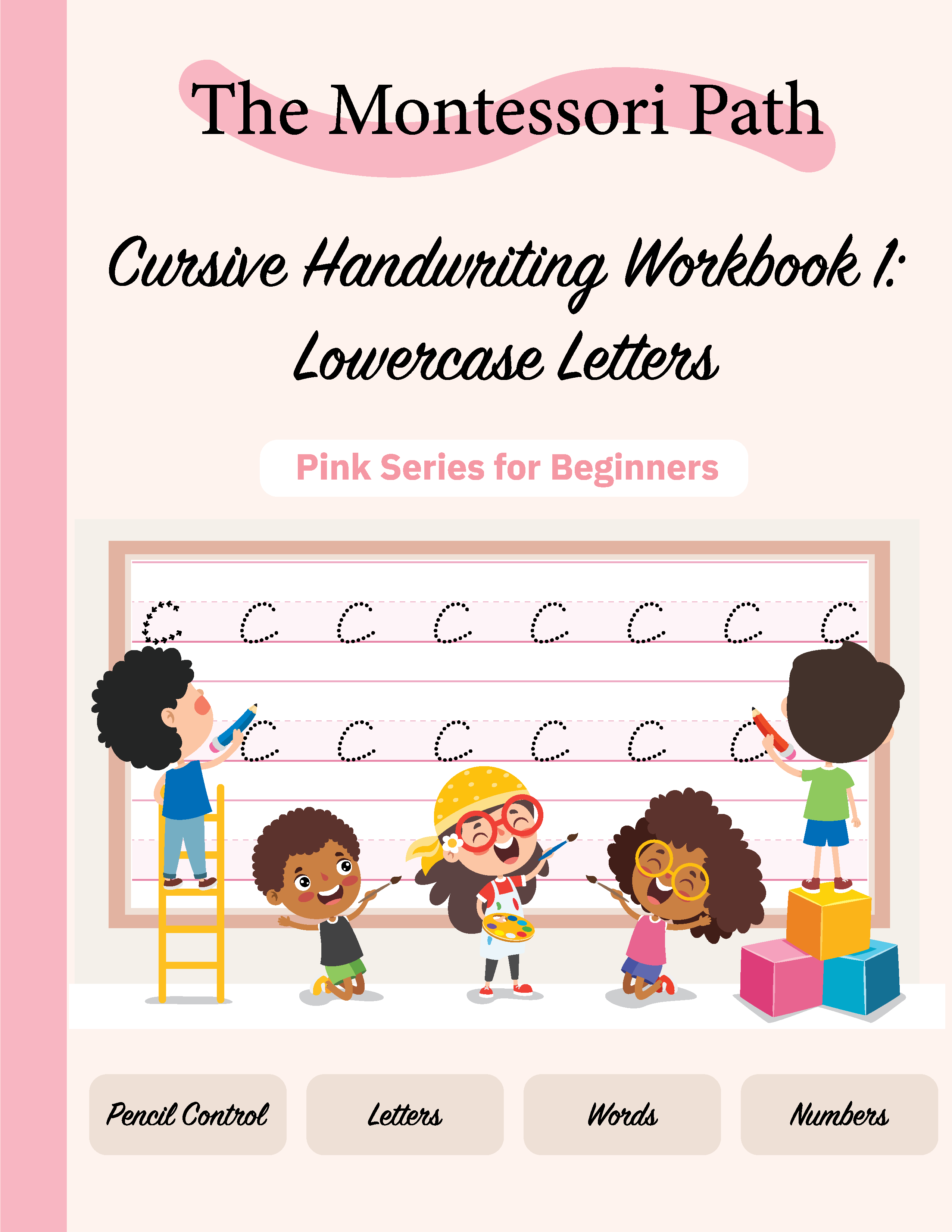
Cursive Handwriting Workbook 1
Lowercase Letters
Pink Series for Beginners
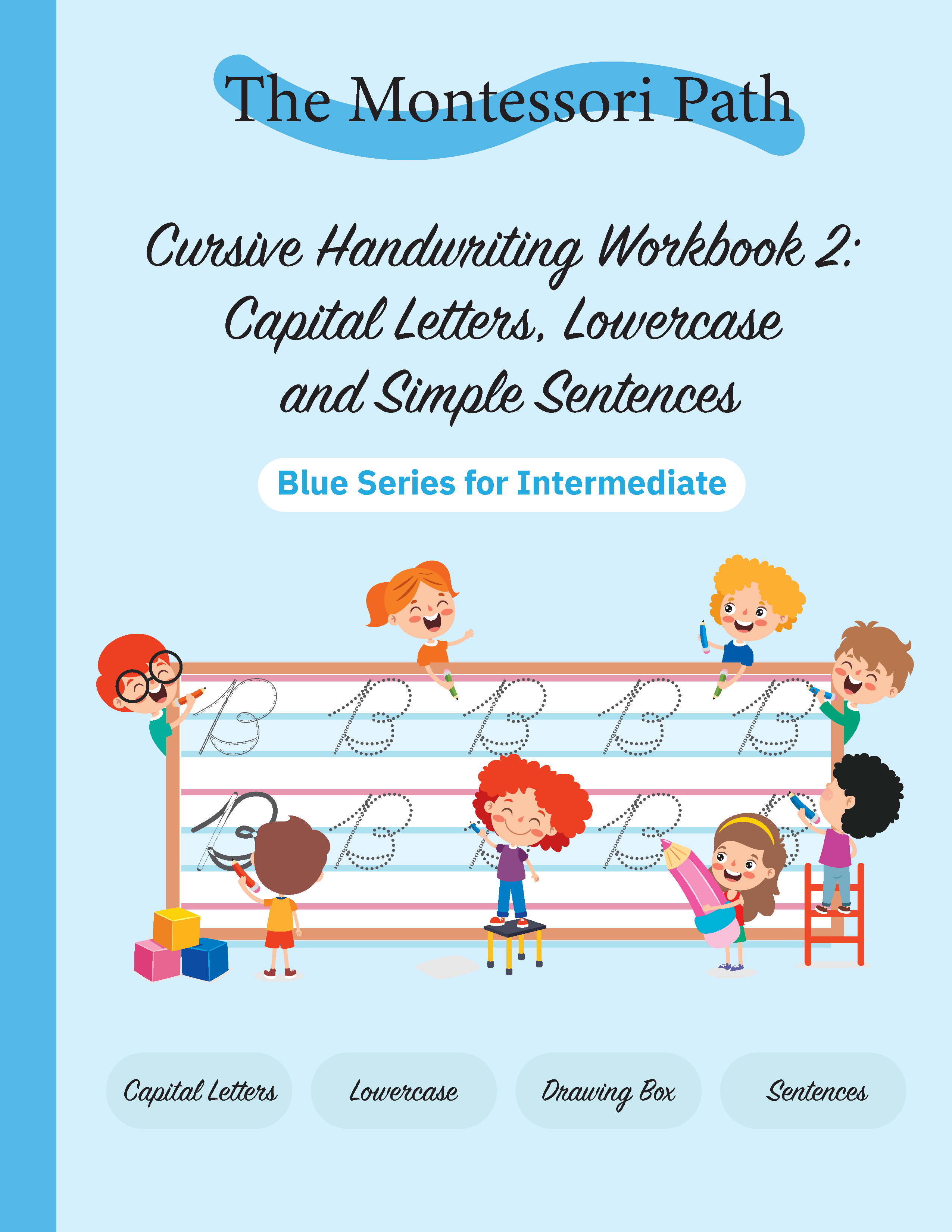
Cursive Handwriting Workbook 2
Capital Letters, Lowercase and Simple Sentences
Blue Series for Beginners
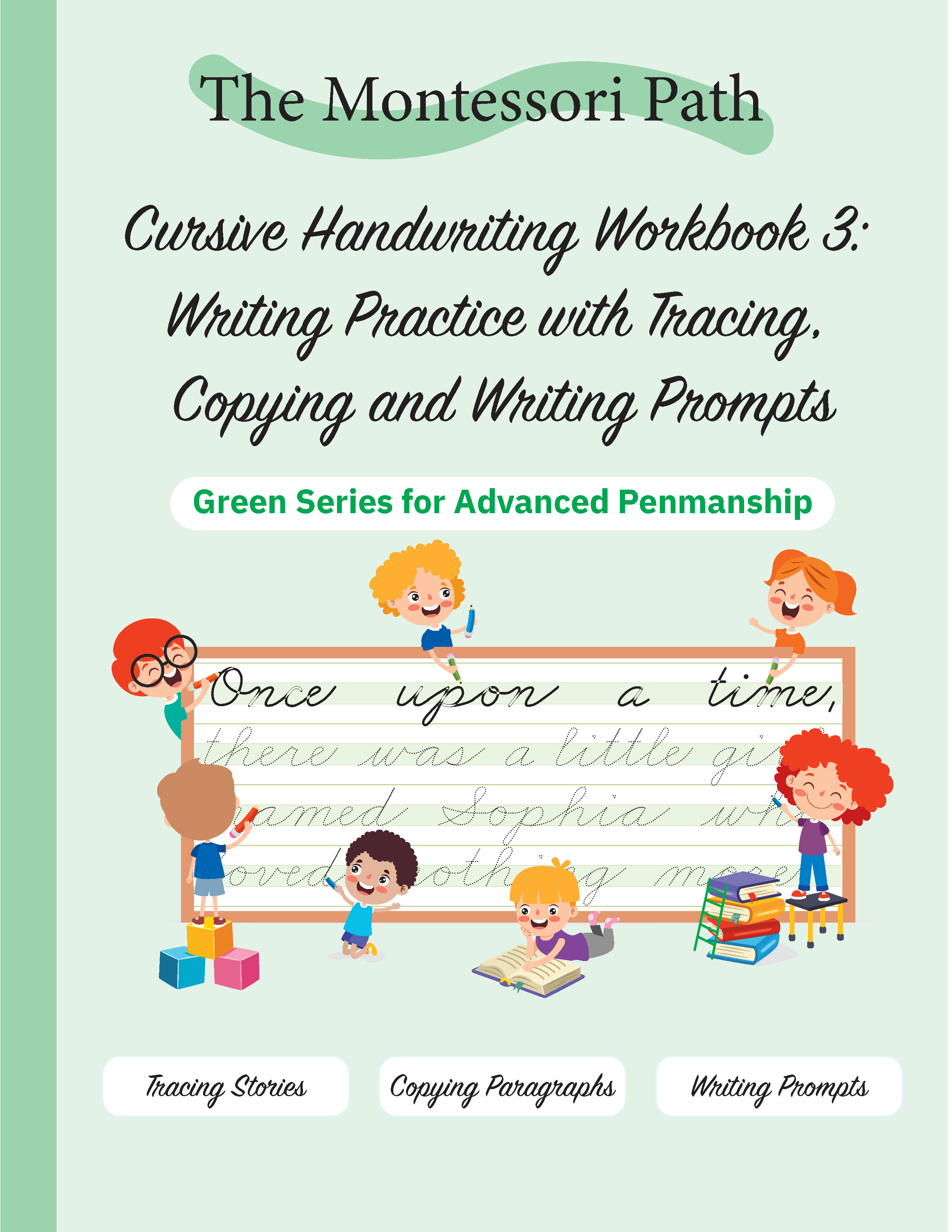
Cursive Handwriting Workbook 3
Writing Practice with Tracing, Copying and Writing Prompts
Green Series for Advanced Penmanship
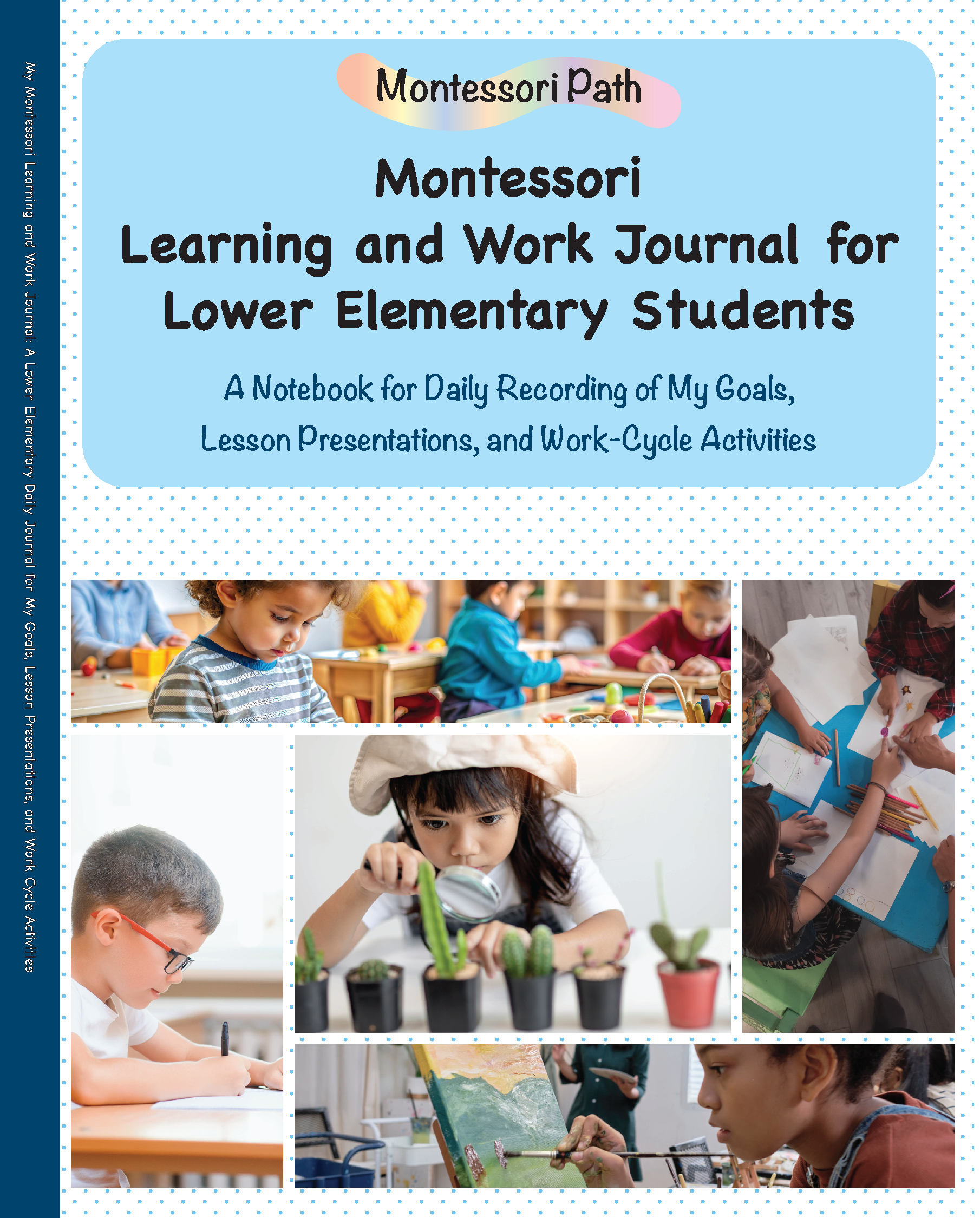
Montessori Learning and Work Journal for Lower Elementary Students
A Notebook for Daily Recording of My Goals, Lesson Presentations, and Work-Cycle Activities

Montessori Learning and Work Journal for Upper Elementary Students
Releasing September 2024
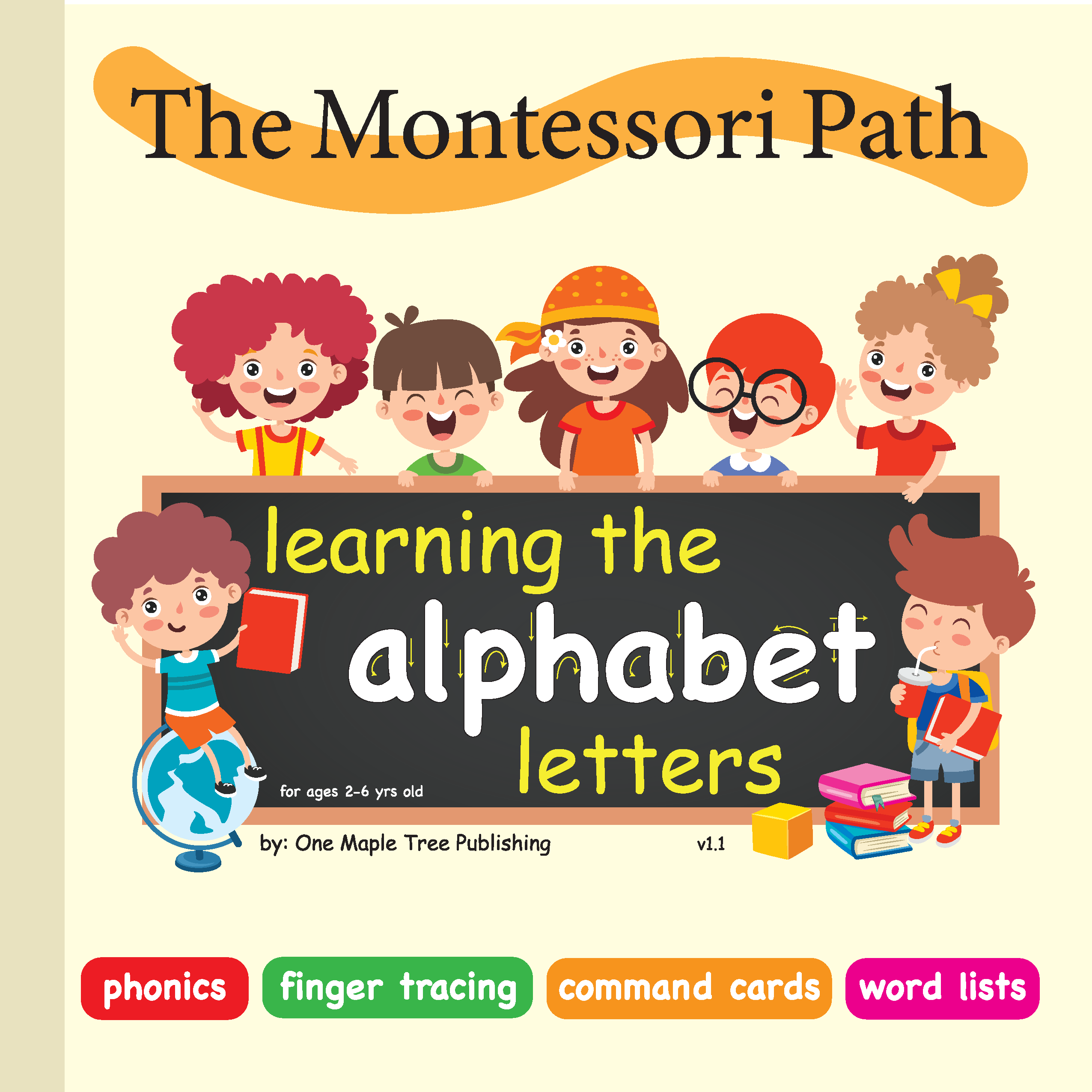
Learning the Alphabet Letters
Phonics, Finger Tracing, Command Cards and Word Lists
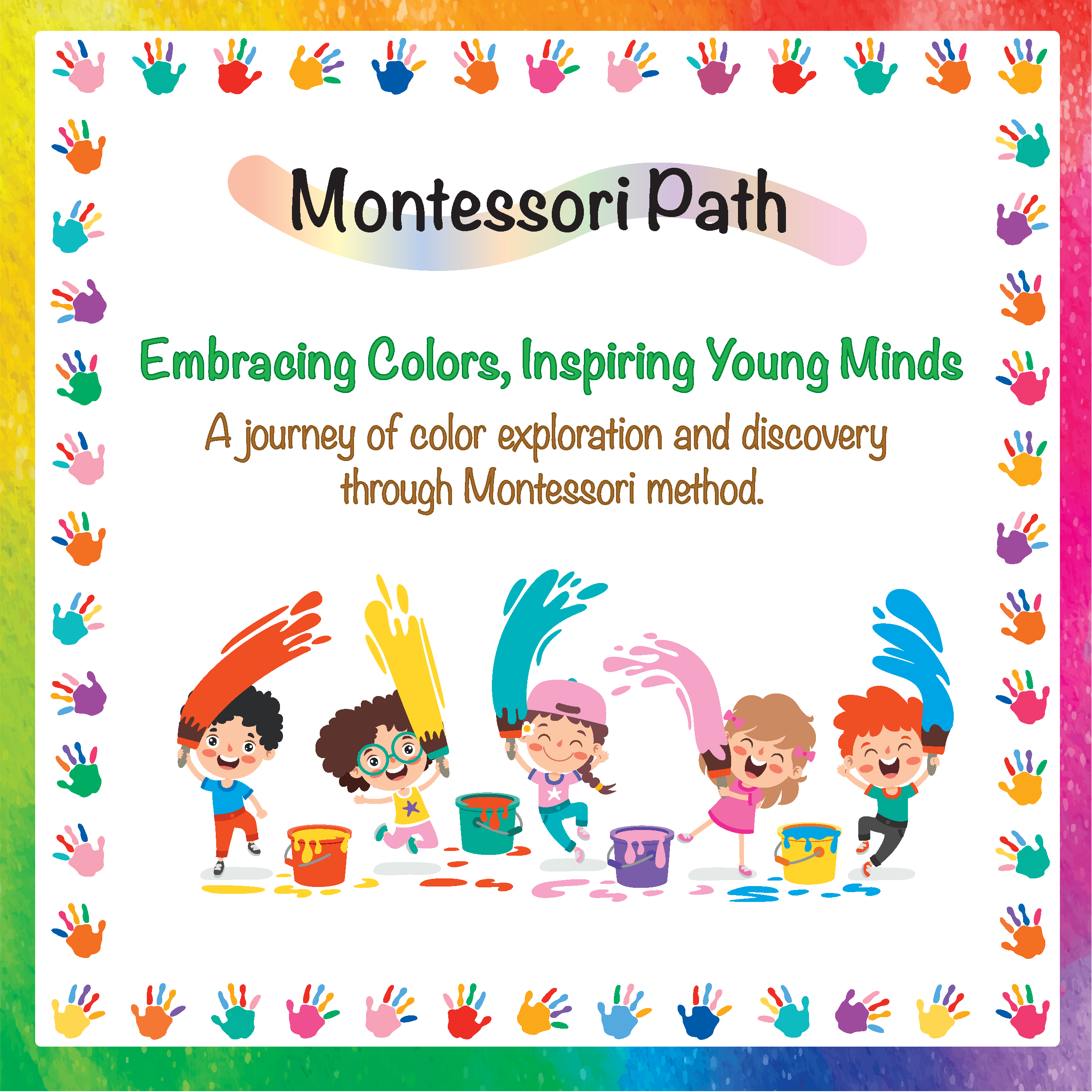
Embracing Colors, Inspiring Young Minds
A journey of color exploration and discovery through Montessori method

2D and 3D Shapes Big or Small
Supplementary Resources
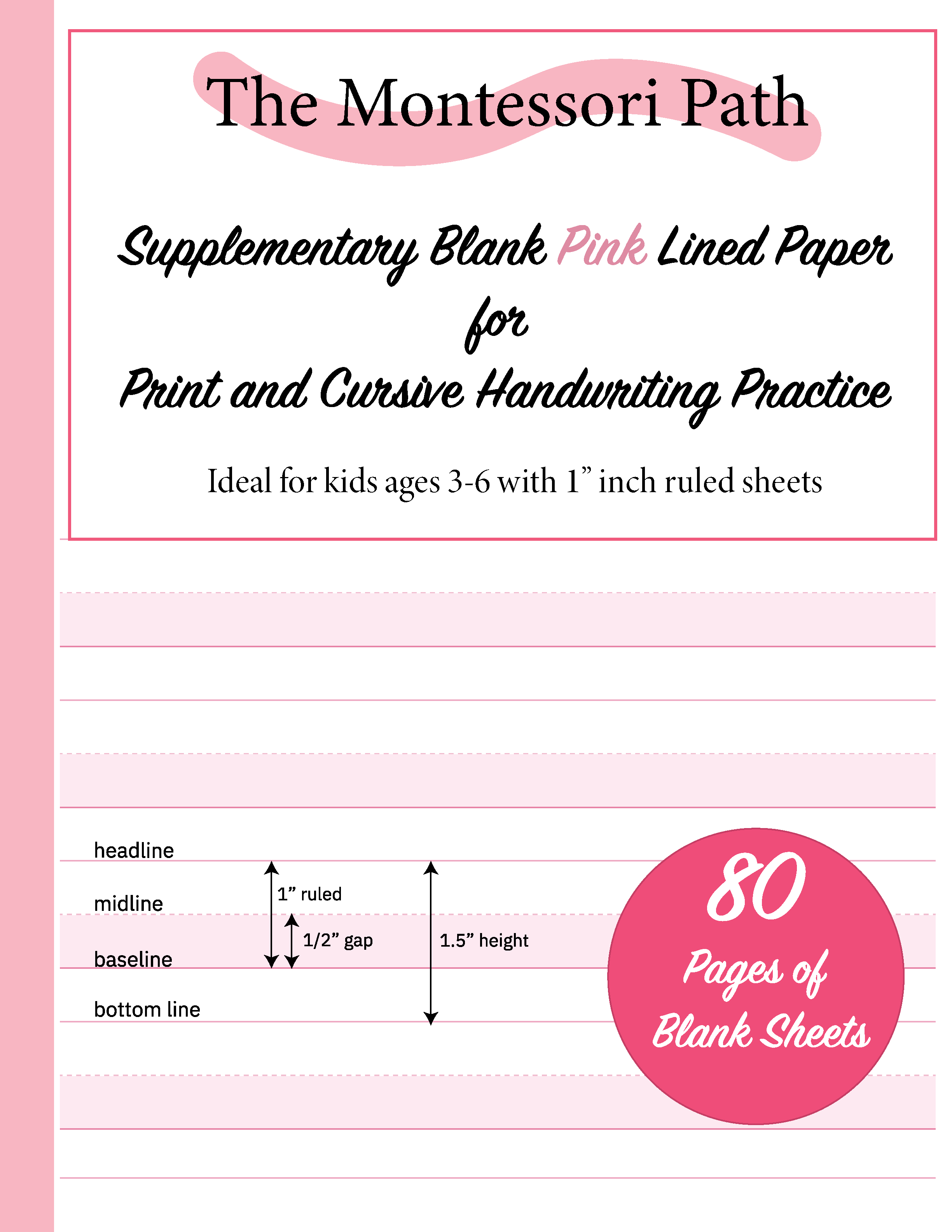
Supplementary Blank Pink Lined
1 inch Ruled for Handwriting Practice
Kids Ages 3-6
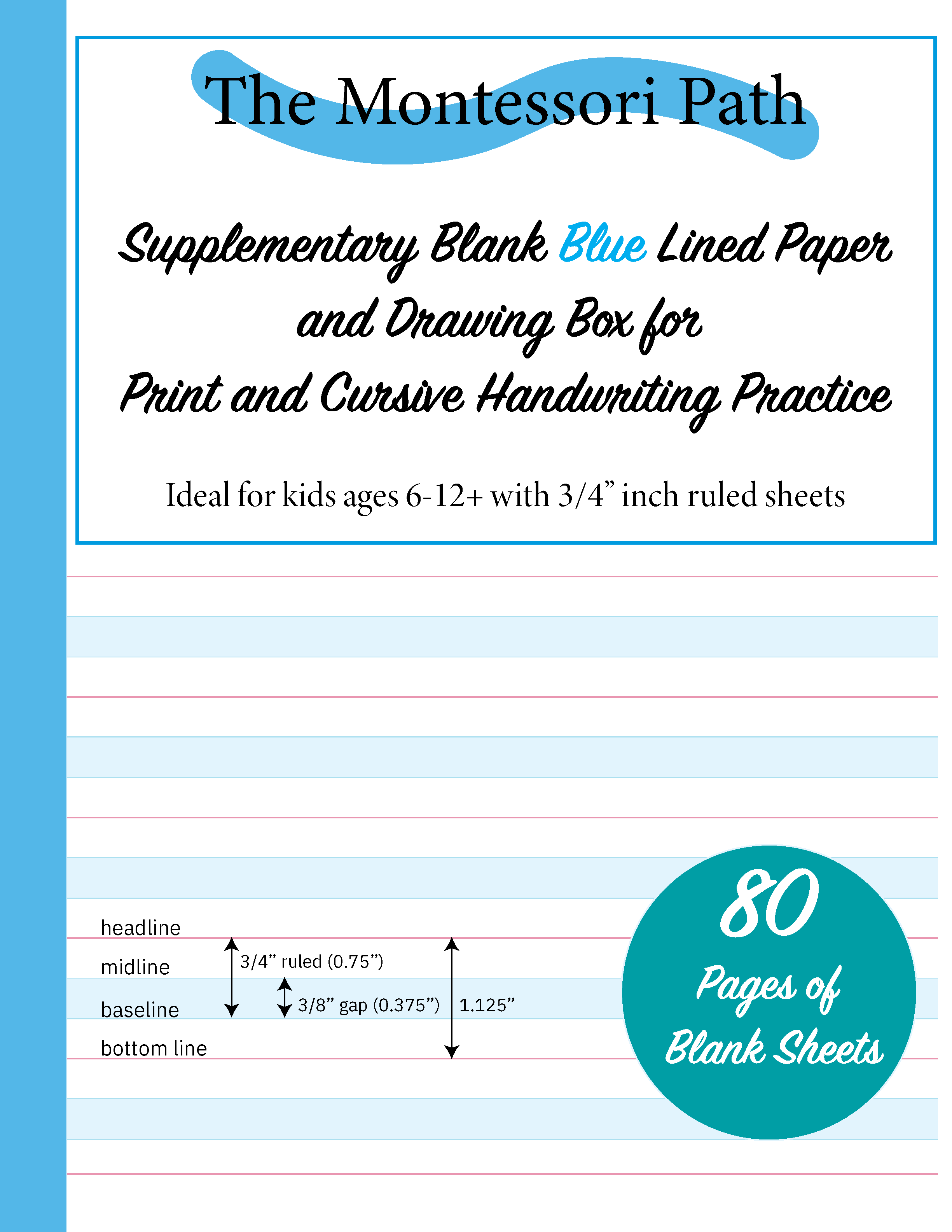
Supplementary Blank Blue Lined with Drawing Box
3/4" inch Ruled for Handwriting Practice
Kids Ages 6-12
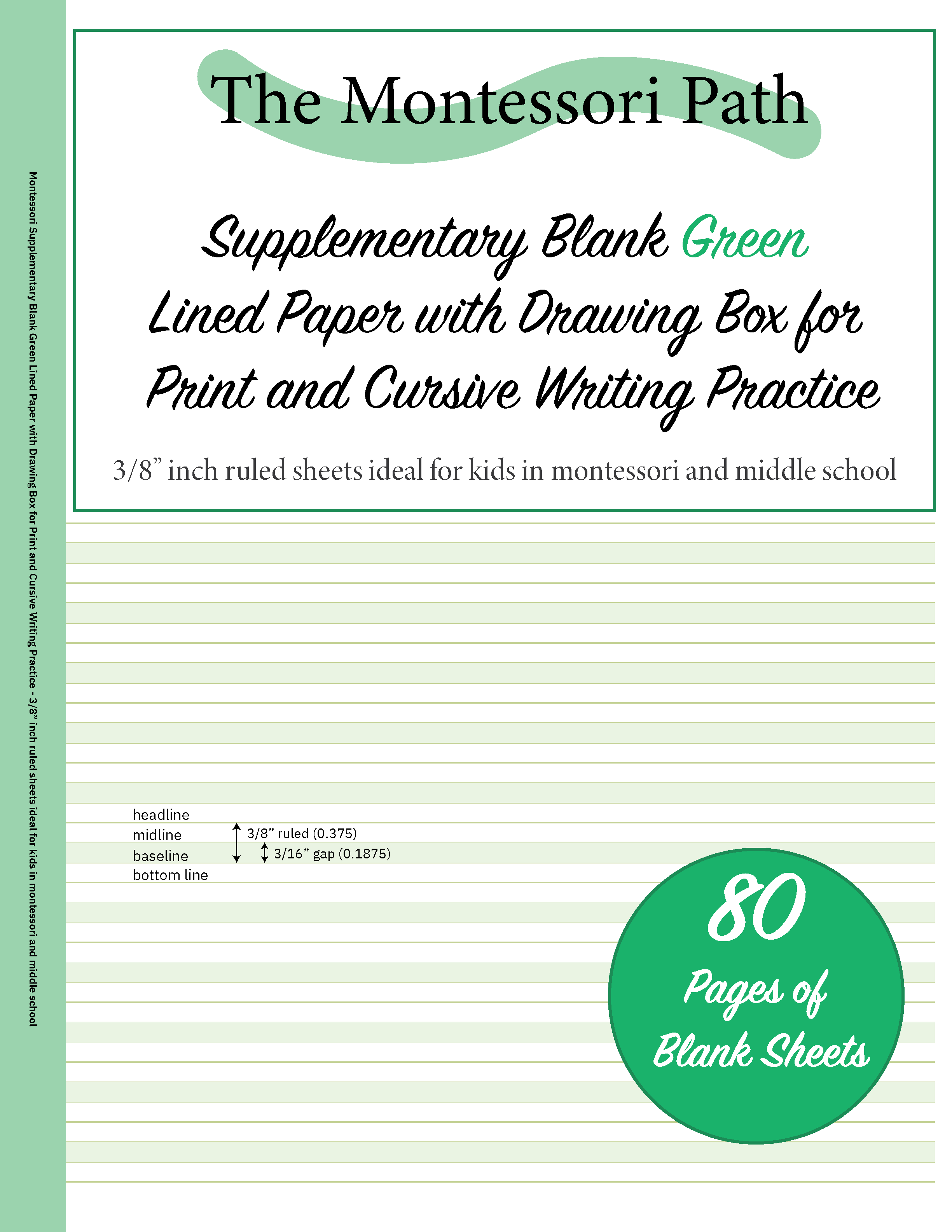
Supplementary Blank Green Lined
3/8" Inches Handwriting Practice
Kids 9-12+
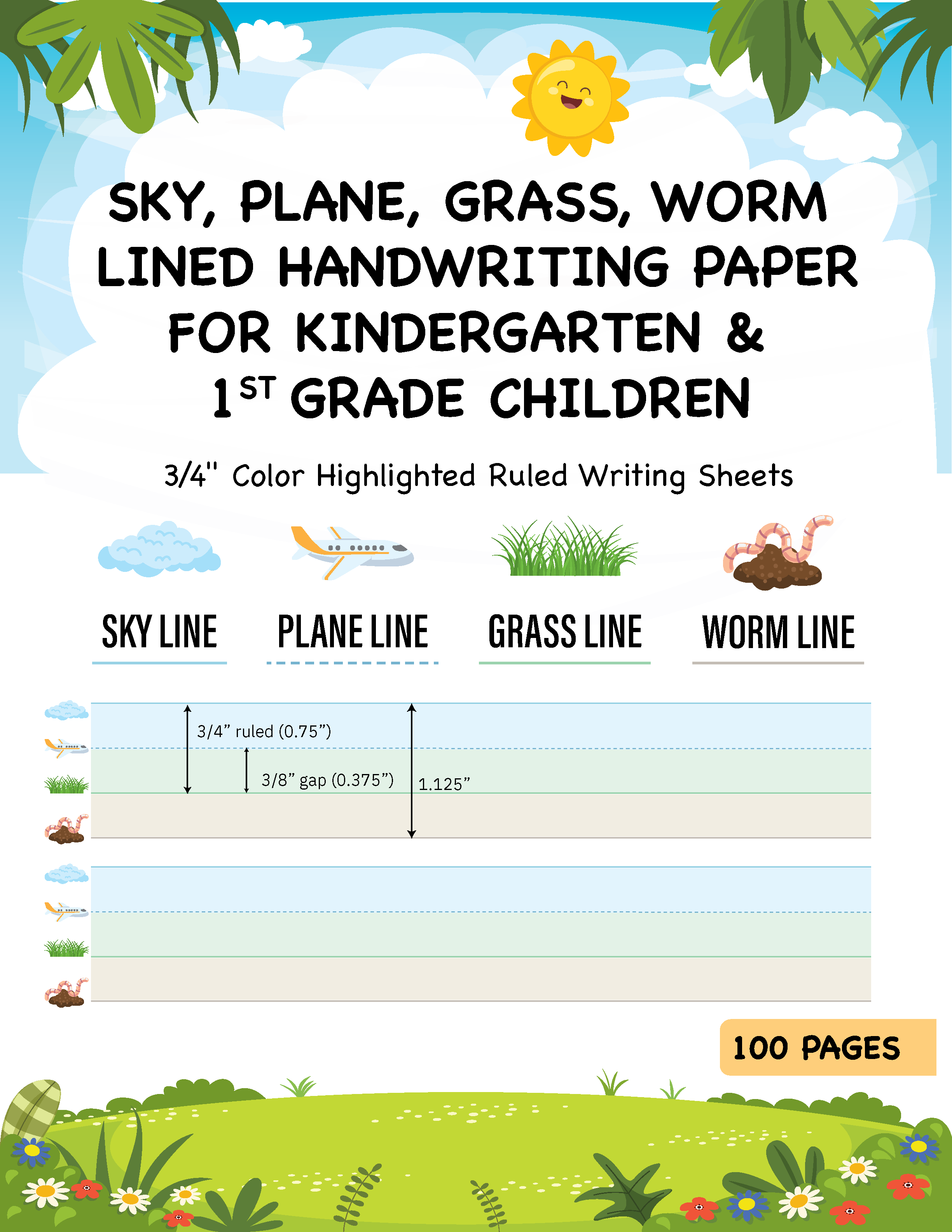
Sky, Plane, Grass, Worm Lined
3/4" Inch Handwriting Paper
Kids in Kindergarten and 1st Grade
